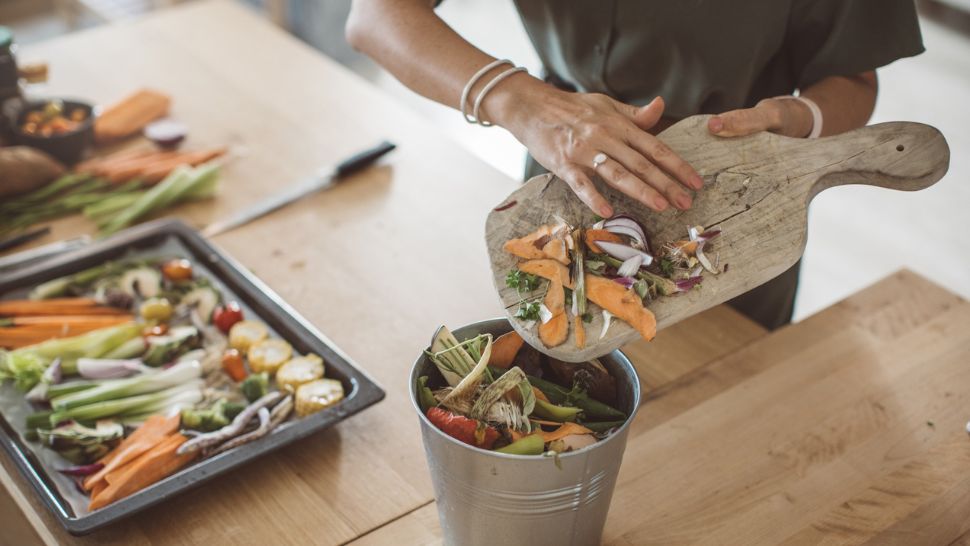
We’ve all experienced it – you reach into the back of your refrigerator and realize a sad, forgotten food has now become a moldy (and sometimes scary) science experiment. If this resonates with you, you’re not alone – as much as 40% of the food that is produced is wasted and each American wastes as much as 238 pounds of food each year (equal to about $1800).
Thankfully, there are many ways to reduce waste in your kitchen. Try out these tips for shopping and preparing food mindfully to help you to stop wasting food…and money.
- Be mindful with (food) shopping. Simple meal planning not only helps you streamline your shopping trip and make daily cooking easier, but it also helps you to save money and reduce food waste because you can purchase only what you need.
- Focus on seasonal produce. Locally grown and seasonal fruits and vegetables are more economical than purchasing out-of-season varieties that must travel thousands of miles. Think winter squash in January, watermelon in July, and tomatoes in August. Check out other benefits of eating seasonally.
- Chill out. If you absolutely must have blueberries in January, buy them frozen (or better yet – freeze them yourself during peak season). They are picked at their peak and flash frozen, so they offer the same nutritional value as fresh at half (or even less) the price.
- Be preppy. Purchasing pre-made marinades and pre-chopped produce can add up, so if you have the time and enjoy being in the kitchen, try doing some of the prep yourself like whisking together a marinade or chopping your produce. Plus prepping fresh food yourself reduces packing cartons and boxes needed for pre-made foods.
- Batch and freeze for later. Cook up extra seasonal soups or stews, make extra bean burgers, or freeze produce you will not eat before they expire to use in smoothies.
- Give beans a chance. Eat vegetarian for at least one meal per day. Beans, lentils, and other plant-based protein sources are far less expensive than meat, poultry, and fish. Try purchasing dried beans in bulk to save money and reduce packaging waste.
- Use all parts of the vegetable. Add beet greens to a pasta dish or soup and use vegetable scraps to make homemade vegetable broth. (Pro tip: Keep scraps and trimmings in a bag in your freezer until you have enough to make stock.) Read our tips for cooking with surprisingly edible plant parts.
- Transform leftovers. Get creative with leftovers! Roast a whole chicken for one meal, use the leftovers for a second meal, and then use the bones to make broth. Or roast a big batch of vegetables and use them as a side dish, or as a topping for salads or grain bowls.
Looking for more ways to manage your kitchen waste? Check out How to Store Food Like a Pro and get tips for 5 Ways to Go Further with Vegetables.